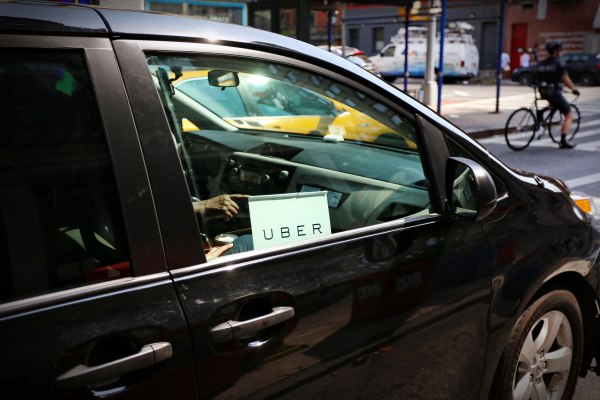The New York Taxi Workers Alliance (NYTWA) and 10 Uber drivers have filed a lawsuit against the company, accusing Uber of stealing wages.
The group representing 5,000 Uber drivers in New York filed the new claims today and says the rideshare giant unfairly skims driver wages without offering the added protections they’d get as employees.
The suit was filed in federal court in Manhattan and represents a total of 19,000 New York taxi, black car and Uber drivers. The group filed separately with the National Labor Relations Board, claiming Uber was illegally preventing drivers from bringing class action suits against the company.
This latest legal drama for Uber is just one of many suits the company now faces throughout the country over the classification of workers as independent contractors and is part of a larger issue facing the company worldwide with competition in Asia, India and legal battles in Europe and elsewhere.
It may also be cause to delay a much-anticipated IPO. CEO Travis Kalanick has repeatedly said Uber would not be going public any time soon and the company’s increasing troubles would be a reason to hold off on doing so.
Instead, Uber recently added a $3.5 billion investment from Saudi Arabia — its largest funding sum ever — to continue to fill its coffers.
Uber agreed to settle a suit over worker classification for hundreds of thousands of drivers in San Francisco in April and pay out up to $100 million to 385,000 drivers. The proposed terms would continue to allow Uber to classify drivers as independent contractors.
Angry Uber drivers showed up at San Francisco’s Federal District Court for a hearing today to protest the terms of the agreement.
Uber contends most drivers are not seeking full-time employment and are happy as independent workers, and told TechCrunch earlier today it believes the settlement agreement with drivers in San Francisco to be reasonable.
“Nearly 90 percent of drivers say the main reason they use Uber is because they love being their own boss,” Uber spokesperson Matt Wing said. “As employees, drivers would have set shifts, earn a fixed hourly wage, and lose the ability to drive with other ridesharing apps — as well as the personal flexibility they most value.”
There are at least eight other claims pending in other states over the classification of Uber drivers. Uber rival Lyft has also faced legal issues over classification of its drivers as independent contractors.
